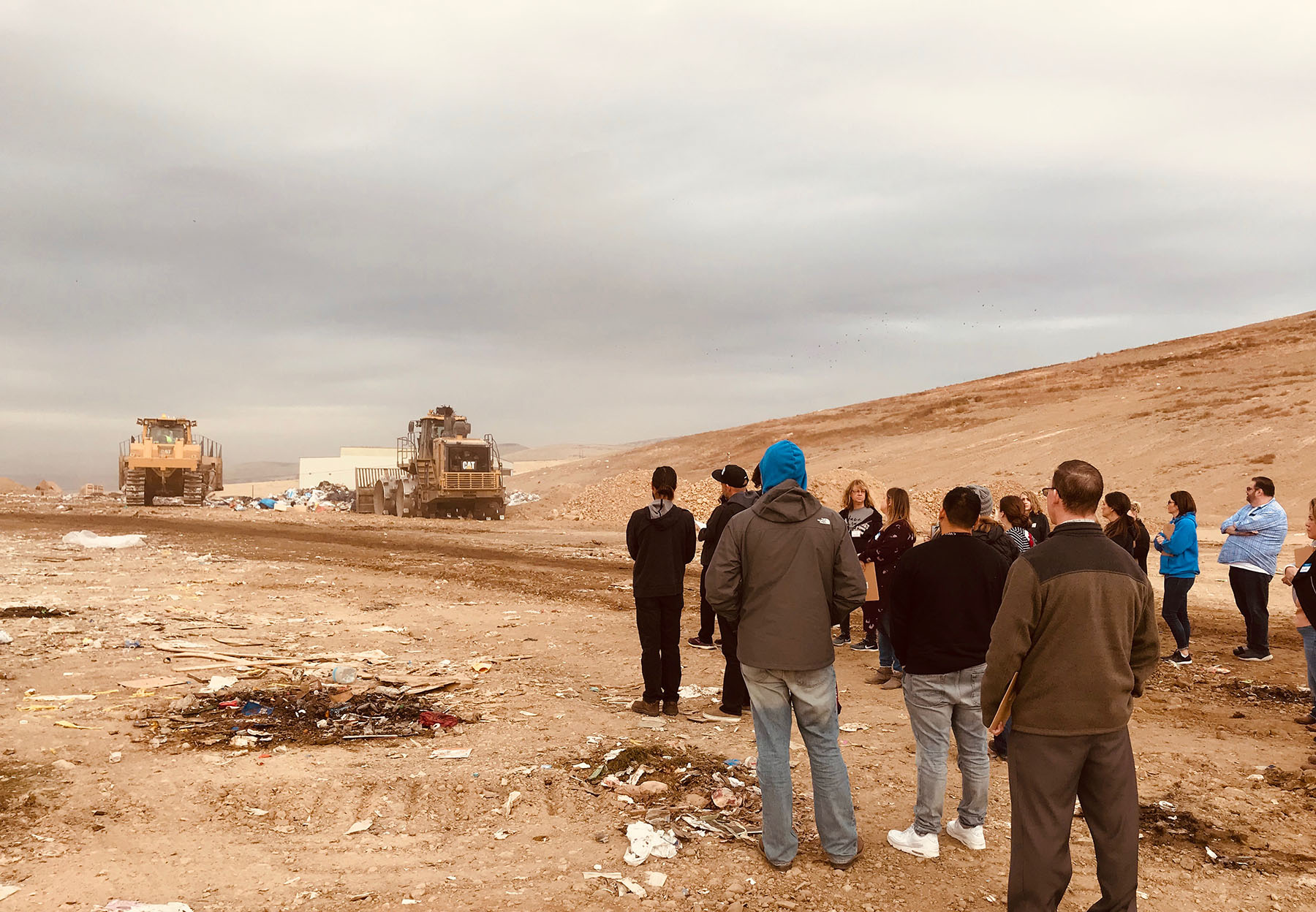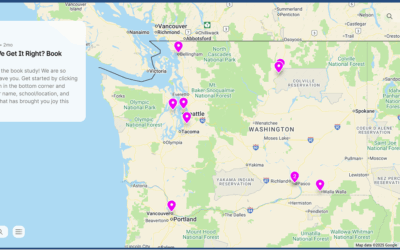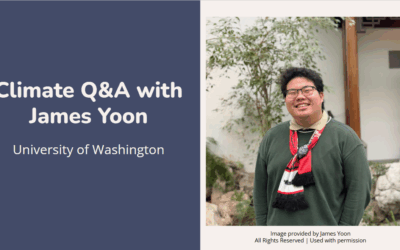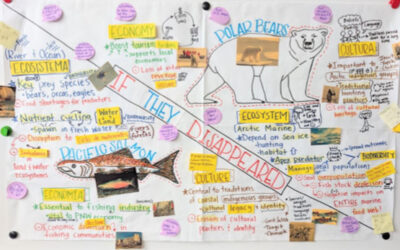The construction of a “lift” to contain the day’s collection of recyclable solid waste is observed by teachers.
Twenty-five elementary teachers from eight school districts in Central Washington gathered in mid-October to learn about ways to use science ideas to protect the Earth’s resources and environment. The six hour learning experience was led by Nayiri Haroutunian and Sahar Abab from Washington Green Schools. ESD 105 played host to the professional learning event and provided transportation for a field trip to the Terrace Heights Landfill east of Yakima.
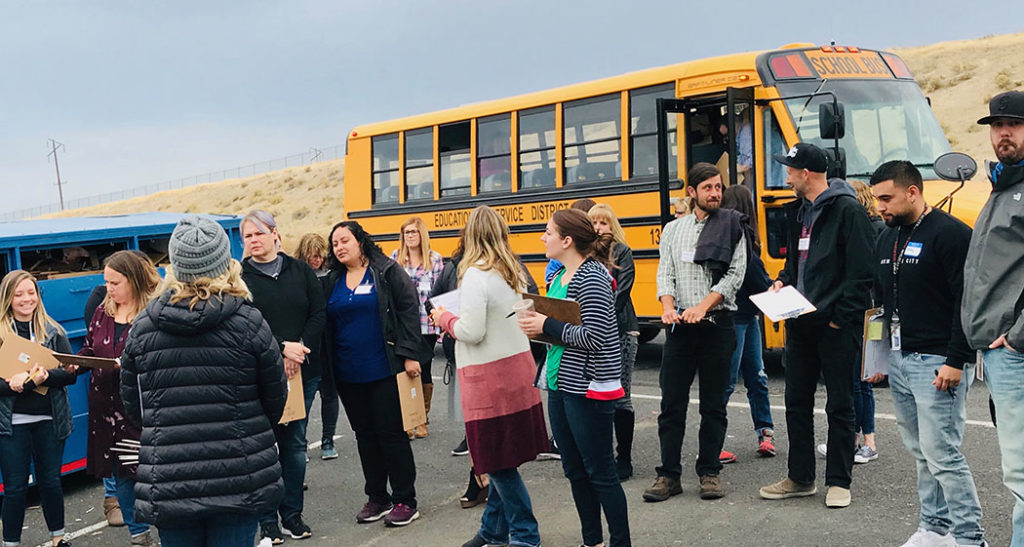
Mikal Heinze, Yakima Solid Waste Education Outreach Coordinator, leads the tour group through the various recycling and waste management operations at the Terrace Heights Landfill
Mikal Heintz, Yakima Solid Waste Educational Outreach Coordinator, led the group on a tour of the recycling and waste management operations. Teachers developed initial thinking models about factors affecting decomposition of matter before the field trip, gathered data and observations during the field experience, then revised their models when they returned to ESD 105.
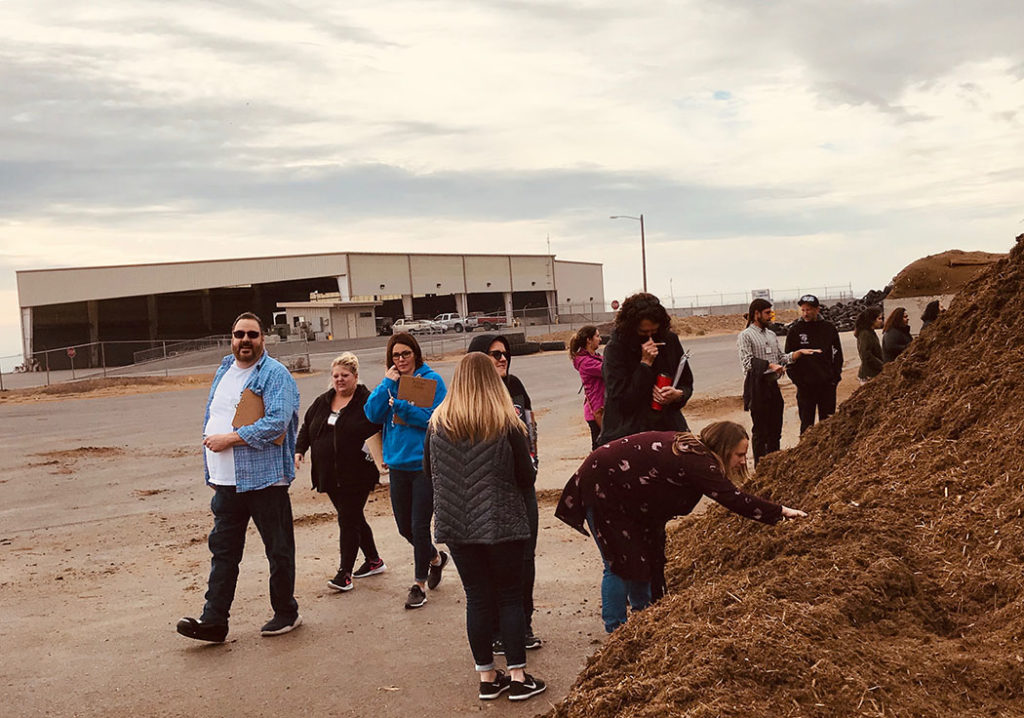
Teachers observe the heat energy produced by recycled yard waste.
Much was learned about recycling and waste management including the current problem with plastics. Nayiri and Sahar showcased lessons from Washington Green School’s curriculum unit called “Zombie Guacamole”. The group explored ideas about the use of school gardens and school lunchroom recycling to promote student interest in ways to use science ideas to protect the Earth’s resources and environment.
ESD 105 and Washington Green Schools will continue to collaborate on more professional learning the supports teachers implementing the NGSS including Climate Science Standards.

